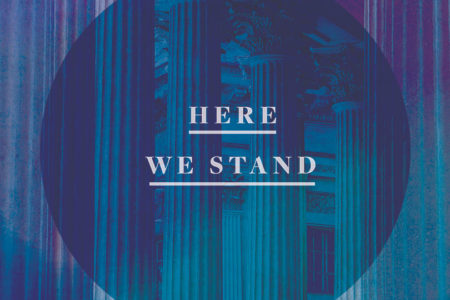The Ultra-Orthodox Dilemma
Teens in the Western World usually have the luxury of choosing to attend a college or university, join the workforce, or enter military service after graduating from high school. In Israel, most have no choice. They’re required by law to serve in the military or to help their country by other means if they’re not physically or mentally capable of military service. Young men are drafted for approximately three years; young women, for two.
In my experience traveling to the Holy Land and interacting with young adults in the Israel Defense Forces (IDF), I’ve learned that their compulsory military service is more than merely a civic duty; it’s an integral part of the social fabric that makes a country of 9 million citizens feel more like a close-knit family. Military service in Israel opens doors to potential careers, unifies relatives who live on opposite ends of the country, rapidly assimilates new citizens, and is a major reason Israel is a technological powerhouse in the world.
Israel’s military-draft law dates back to the country’s independence in 1948. In 1949, David Ben-Gurion, Israel’s first prime minister, exempted 400 religious students from military service in order to restore the tradition of yeshiva learning that the Holocaust had all but eradicated.
Fast-forward 70 years, and Ben-Gurion’s decision has become Netanyahu’s political headache.
When Prime Minister Benjamin Netanyahu’s Likud party won the national election in April, Netanyahu was tasked with forming Israel’s 35th coalition government. He failed primarily because of the law exempting Israel’s ultra-Orthodox from military service.
Israel’s ultra-Orthodox Jews believe they are commanded to separate themselves from modern society. Avigdor Lieberman, head of the Yisrael Beytenu (Israel Is Our Home) party, a secular conservative party that everyone thought would work with Likud, sponsored a bill in 2018 requiring ultra-Orthodox Jewish men to serve in the IDF. The Knesset easily approved the first reading, signifying that a large majority believes all Jews, whether ultra-Orthodox or not, should serve their country.
Today the ultra-Orthodox comprise nearly 10 percent of Israel’s citizens; and they are conservative voters. Netanyahu is in a political quandary: How can he please the far-right ultra-Orthodox, who believe they should be exempt from military service, and the nonreligious conservative parties that believe otherwise?
Lieberman had promised to join Netanyahu’s coalition government under one condition: passage of his conscription bill. Of course, the ultra-Orthodox parties objected. The one thing both sides could agree on was that if Netanyahu didn’t meet their demands, they would welcome new elections. New elections will be held in September, after this issue of Israel My Glory has been published.
The ultra-Orthodox are not the only ones exempt from military service. Israel’s Arab and religious Druze citizens are also exempt. However, exemptions are voluntary. If people within these groups wish to serve in the IDF, they are welcome to do so. In fact, the IDF welcomed its first Druze helicopter pilot to the Israeli Air Force this summer.
In my many trips to Israel, I’ve learned that all Israeli citizens benefit from their stints in the military. Serving in the IDF isn’t easy, but it is a rite of passage.
The moment an Israeli dons the uniform, his or her background becomes irrelevant. It doesn’t matter if the soldiers are Jewish, Muslim, Christian, or Druze. It doesn’t matter if their families have lived in the land more than a hundred years or if they showed up yesterday. It doesn’t matter if they’re rich or poor. And it certainly doesn’t matter if they’re ultra-Orthodox. Serving in the IDF embeds them all into the country’s culture by providing a moment to defend, uphold, and protect the nation that gives them freedom.
Only time will tell how the political situation shakes out. If Netanyahu wins again, he may still have a difficult time forming a government. Meanwhile, it seems a shame there is so much division over this issue because all Israelis benefit from serving the only Jewish state that exists in the world.





Very informative. Like the idea once you put on uniform everything else doesn’t matter. Unity for their country.
Please explain “the tradition of yeshiva”? I have heard this word before, but don’t remember what it means. Thank you